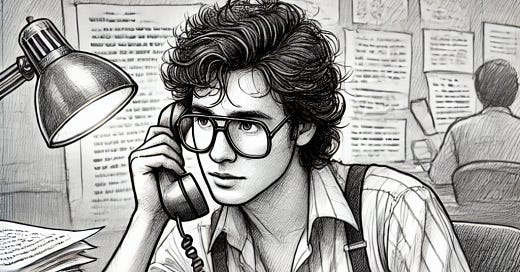A famous writer was on the phone. I was nervous.
I had called him to discuss a piece that he had written, or, more precisely, a piece that he had typed on his typewriter and then faxed to the magazine. (Many of the old-school professionals liked to work via fax.)
The purpose of the phone call was to offer some edits on the essay. We had a nervous chuckle about that. The famous writer had such command of his style and his word choice that I was too intimidated to offer much editing. I was mostly conveying the changes that would make the piece conform to the magazine’s house style. (In retrospect, the essay would have benefitted from some editorial pushback.)
But we did get to talking about the actual publication of the piece: this was seemingly the first time the writer was publishing straight to the Internet. How would people find it? Who would read it? Would it be preserved anywhere?
As we spoke, I sensed his frustration. The landscape had shifted under his feet. The terra firma of paper was crumbling. He was feeling insecure.
“Insecure” might be an overstatement. The essay, after all, was a very minor work in what, at the time, was a career bathed in autumnal glory. Perhaps “unease” is better. But—still—here was a writer who had accomplished so much and you could sense the uneasiness. He wanted to know how his words would be received, taken in, and understood on this alien planet that had appeared out of nowhere.
The phone call has stayed with me as a famous-person encounter but also as evidence of a basic, but—for me at least—transformative observation: you never arrive. There is no secure place, no destination. Especially when you are young and starting out, it’s tempting to think: if just get this assignment/book deal/position/degree, then my writing life will be set. I cringe to even type that sentence!
You never arrive. The writing life is a continual improvisation, and part of being a writer is making an accommodation for insecurity.



